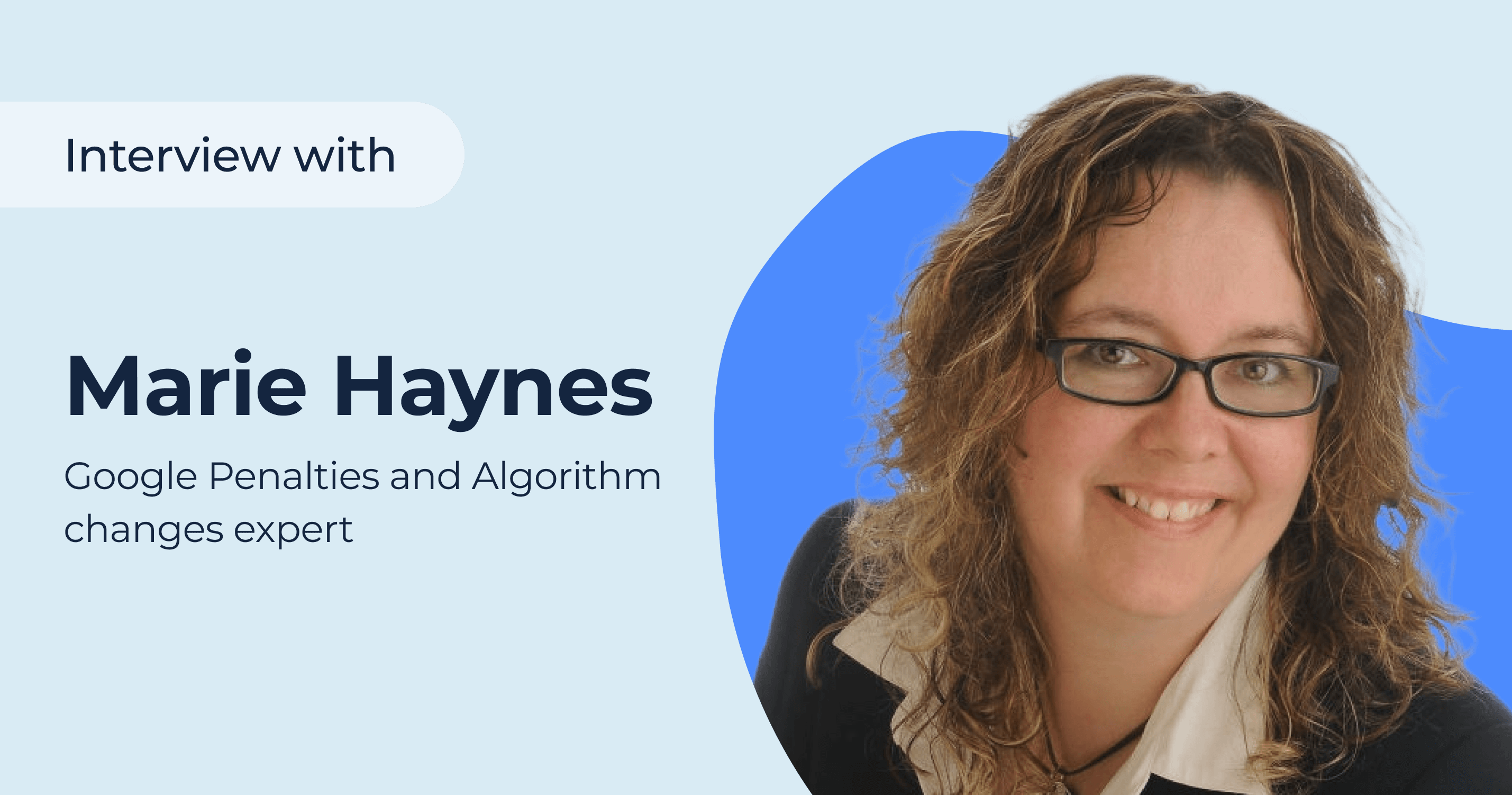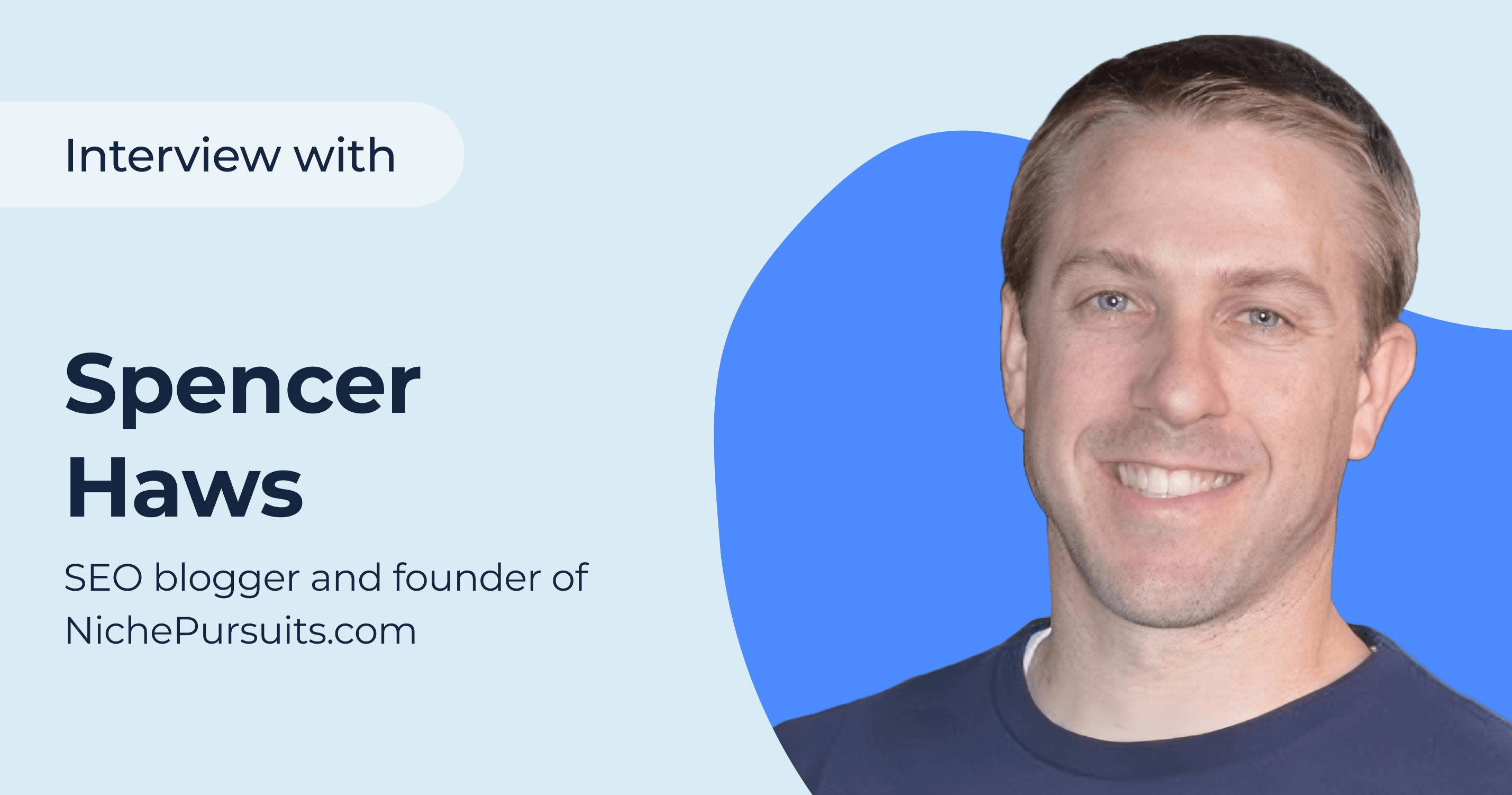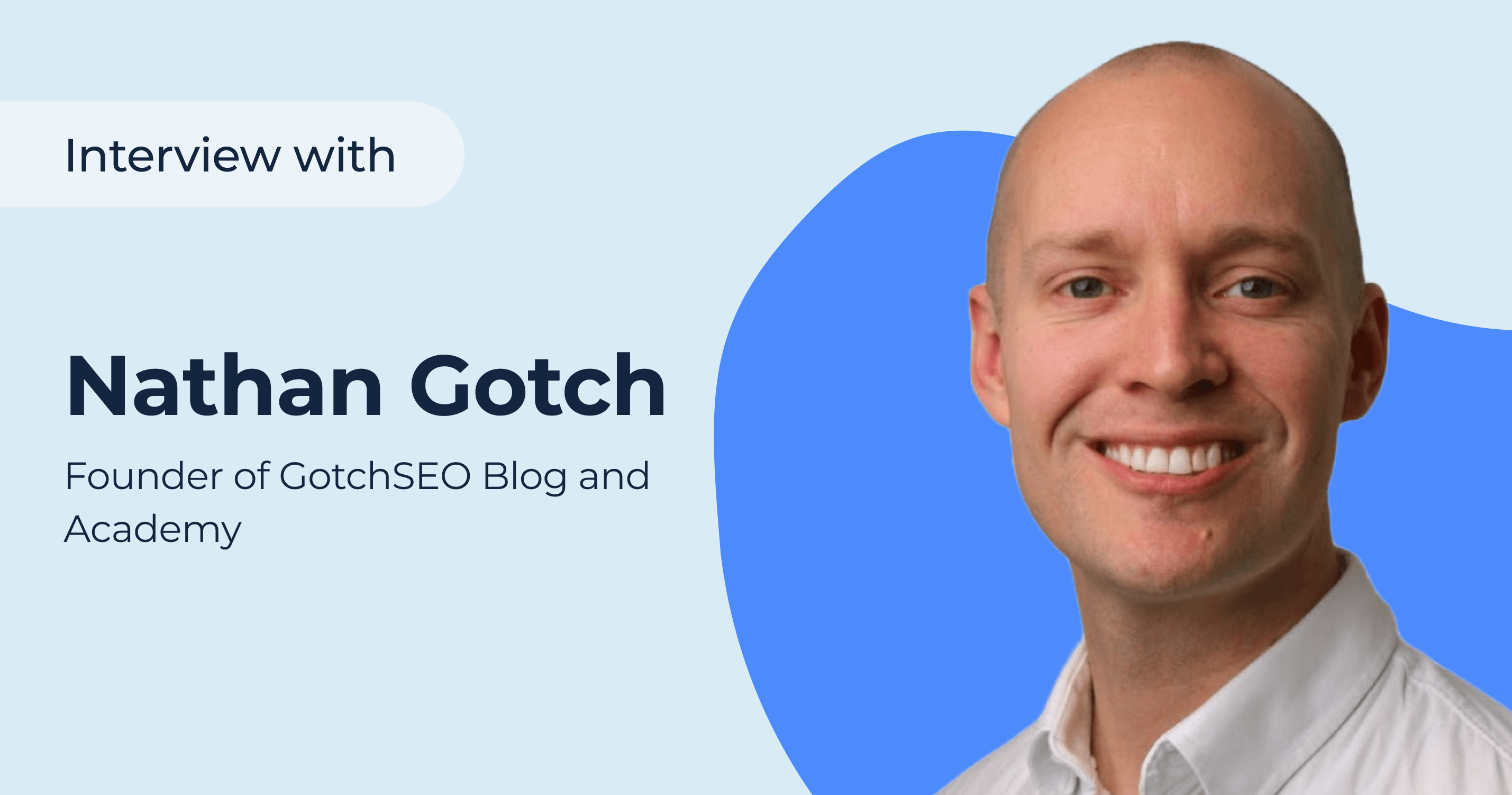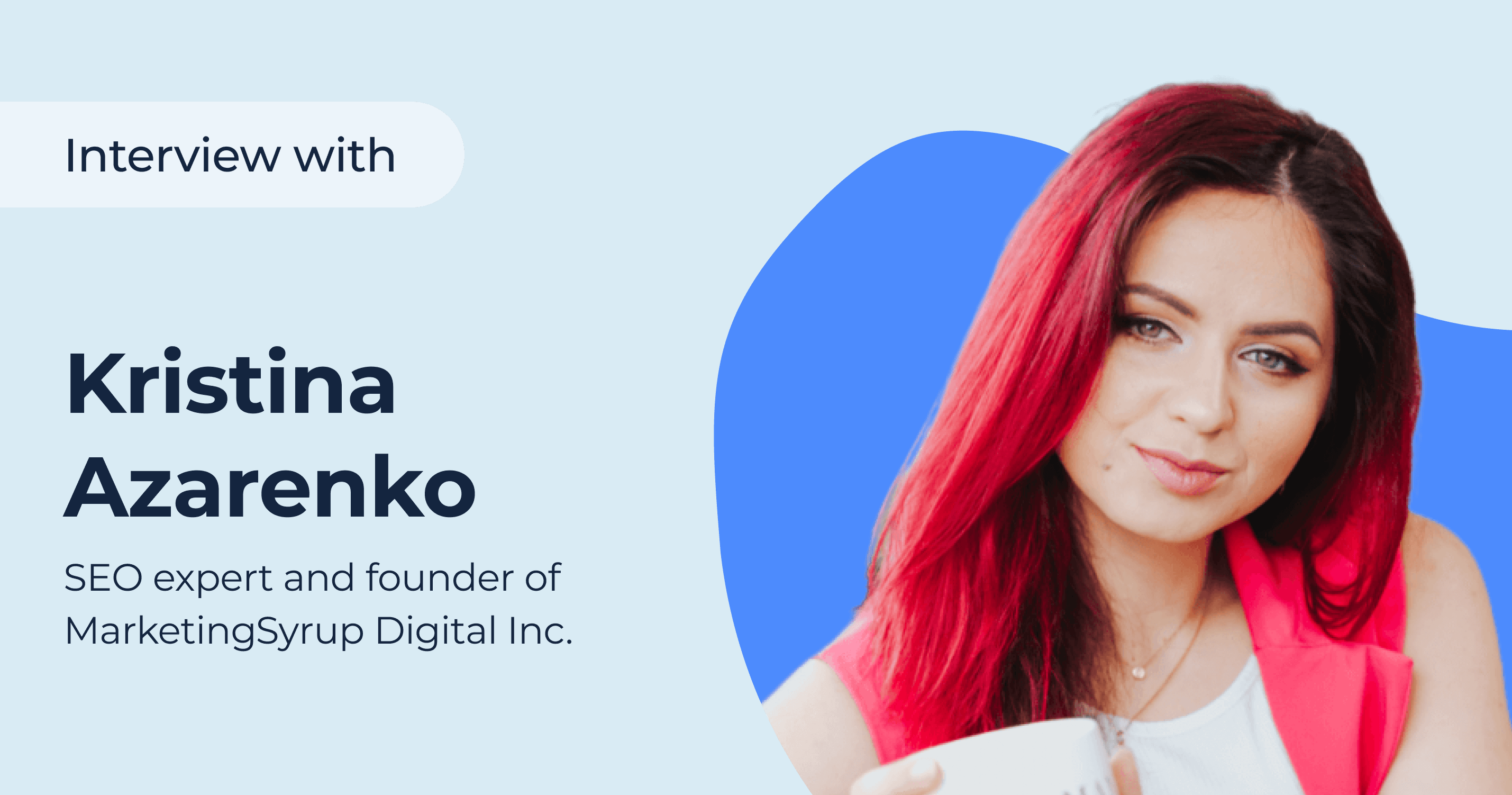We continue our series of interviews with TOP SEO and Digital Marketing experts. This week we start with the interview with Marie Haynes!
Marie’s interest in working with search engines is to understand changes to Google’s algorithms, such as Google’s core quality algorithms, Penguin algorithm, and Panda algorithm, as well as Google’s penalties. Marie is the owner of Marie Haynes Consulting Inc. and she shared her SEO knowledge and experience in this interview. She also talked about the main and important ranking factors that implement the SEO strategy.
To know more about Marie Haynes projects, follow her Twitter page or Website.
So let’s start! Spread your knowledge about SEO with Sitechecker and Marie Haynes:
1. How many years of experience in digital marketing do you have?
In 2008, I was dealing with a serious back injury and was on bed rest. I had always wanted to learn HTML, so we bought a laptop and I taught myself how to create a website. I believe I started by using a “Hello World” tutorial on About.com. I was a veterinarian then and created a website where people could ask me questions.
I was getting very few visitors to this website, so I started to jump into SEO forums online to get some help. Once I began to see my website grow and actually start to make money I was hooked.
I was very active in SEO forums for several years while my main career was still being a veterinarian. (I was one of the vets for Stephen Harper when he was Prime Minister of Canada.) Then, in 2012, when Google released the Penguin algorithm, I was once again on bed rest. I spent about 16 hours a day trying to understand Penguin, simply because it was fascinating.
My skills are generally in diagnosis. Why is a website not performing well? How can we make changes so that search engines love it? If we can answer those questions we can often see very satisfying results. Our work these days is mostly site audits, link audits, and manual penalty removal.
Marie Haynes, Google Penalties and Algorithm Changes Expert
People began asking me to consult for them and at first, I declined. Eventually, though, I took on a few manual penalty challenges and loved it. As I learned more and more skills, I began offering site quality reviews and was amazed to see that I could actually help websites get more search traffic.
Today, I have several employees and we spend our days auditing websites and their link profiles. I am still licensed as a vet but have not practiced in many years.
2. In which branch of digital marketing or SEO do you have the strongest skills?
My skills are generally in diagnosis. Why is a website not performing well? How can we make changes so that search engines love it? If we can answer those questions we can often see very satisfying results. Our work these days is mostly site audits, link audits, and manual penalty removal.
3. What projects are you proud of?
I am so proud of our newsletter. In 2012, I started watching every single Google help hangout and taking notes. In 2014, I started an email list where I would send people an email if there was an update of the Penguin or Panda algorithms. As I learned tips in Google help hangouts I would add these to the newsletter.
Today, our newsletter takes our entire team of eight people to produce. Each episode is 5000+ words. Whenever I travel I am amazed to hear people say that they use the newsletter regularly for staff training. Newsletter also evolved into a podcast where I share my thoughts on SEO each week along with the current news.
4. What do you do to further your own SEO knowledge and skills?
I usually spend a couple of hours a day on Twitter. I’ll also read several SEO articles per day. My team does a lot of article reading as well and then summarizes these articles for our newsletter readers. Each week I thoroughly digest the newsletter before it is published so that I can record a podcast teaching others what has happened in the SEO industry this week and how we can take advantage of any new Google changes we have observed.
As with so many things in life, I have found that the best way to learn something is to teach it. If there is an item in the newsletter that is new to me, I can’t speak about it unless I dig in and learn more.
5. Is there any marketing or SEO blog you like most of all and why?
Outside of our own resources, we spend the most time on Search Engine Round Table.
6. What are the TOP-3 errors you made at the beginning of your digital marketing career?
I think I spent too much time reading and not enough time doing. If anyone reading this is trying to get into SEO, consider starting a website and trying to get it to rank. We are learning so much with our entry into Wix’s SEO competition. For some of my team members, it is the first time they have taken a website from creation to ranking. I believe that becoming a good SEO is like becoming a hockey player. I could read about hockey all day long and spout stats and know the mechanics of how to shoot and skate well, but truly the way to get better at being a hockey player is to actually play hockey.
The second error I made was not hiring sooner. If you are a solo SEO consultant who has too much work, consider hiring. I kept telling myself I couldn’t hire because I wouldn’t have time to train anyone. If you have a successful business, you’ll never have time magically open up for training new staff. After I hired, my productivity and income dropped slightly, but only for a few months. It’s been growing ever since then though.
I think there are loads of good data in Google Search Console that often gets ignored by SEOs. For example, we often find that thin content is being discovered in Google’s index coverage report.
Marie Haynes, Google Penalties and Algorithm Changes Expert
The third mistake that I made, I hesitate to call a mistake because I believe this was all a part of my learning process. When I made the leap from a veterinarian to full-time SEO, I initially focused on just penalty work and diagnosing whether a site had been affected by an algorithm update like Panda or Penguin. But, I tried to do too much. Eventually, I got asked to do other work. Early in my career, in a given day I’d be working on three penalty sites, spending four hours answering SEO questions via email and forums, doing ongoing monthly SEO for a few small businesses, and also doing perhaps a consulting phone call with a large brand’s marketing team. All in one day! When you are first starting out, it is tempting to take on absolutely every piece of business that comes your way, even if it’s not something that you are excited about. These days, if a client comes to us with a job that is outside of our wheelhouse we will usually refer them away. While it can feel bad to turn down business, in the long run, it helps you service your current clients much better if you focus on what you do really well.
7. Do you think a personal brand is important for an SEO expert?
For me it was! My company used to be called HIS Web Marketing. It was EGOL, an amazing mentor I found in the SEOChat and Moz Q& A forums, who first recommended that I start working on personal branding as I was starting to get some name recognition.
Now our goal is to brand MHC as an entire team of skilled SEO professionals, rather than just being seen as a support team for me.
8. What SEO tactics do you think are underrated?
I think there are loads of good data in Google Search Console that often gets ignored by SEOs. For example, we often find that thin content is being discovered in Google’s index coverage report.
Links are likely always going to be important in Google’s algorithms. But, Google is getting much better at determining which are true recommendations. Our goals should be focused on finding ways to truly get people to want to link to us.
Marie Haynes, Google Penalties and Algorithm Changes Expert
9. Do you believe that back-links are Google’s past? Is link building important for increasing the website’s positions nowadays?
The phrase “link building” is a tough one, because really, a truly natural link is one that comes about because someone wants to recommend your content. While it’s not against Google’s guidelines to ask for a link, if the majority of your links are there as a result of you trading content, guest posts, etc. for links, those likely are not going to help. In some cases, we feel that link building like this can actually hurt. We’ve seen some good results lately that have come as a result of filing a thorough disavow for sites that have been overdoing link building.
Links are likely always going to be important in Google’s algorithms. But, Google is getting much better at determining which are true recommendations. Our goals should be focused on finding ways to truly get people to want to link to us.
10. In your opinion, does the technical health of the website affect the ranking positions in search engines?
We do believe that Google creates some sort of a trust score for websites. It is our belief that if a site falls below a certain threshold in that score, they will not be able to rank for YMYL queries. Technical health likely can be a component of this trust. The health of a website can affect what content is indexed as well. If you have technical issues that produce a large volume of thin content, or perhaps that cause your own content to not be crawled properly, that’s a concern.
11. We all know about the July update from Google. Some websites rose, some of them fell. What do you think about the new algorithm? What are the main new rankings factors SEO and Marketing specialists should pay attention to?
The last big update confirmed by Google was June 3. We feel that most of the turbulence we have seen in July is due to Google making tweaks to what changed with the June 3 update. In our opinion, Google is continually changing the criteria they use to determine trust for a website.
We believe that many things that are outlined in Google’s Quality Raters’ Guidelines as a sign of trust are things that Google is attempting to measure algorithmically. For example, if an eCommerce store does not publish their refund policy, or does not have clear contact information on their site, this can likely contribute to a lower assessment of trust.
12. How do you see the future of SEO (in 5 years)?
There will always be a need for people who understand how the web works, how Google works, and how to help businesses to make more money from their online efforts. I think though, that what will change is that it will be harder and harder to rank a site well unless they truly are the best option for searchers. In the past, a good SEO could take a mediocre site and with enough links and on-page tweaks, it could often outrank the big players. Five years from now, we’ll likely see that this is extremely rare.
13. What services/companies/apps have inspired you the most this year?
This might sound silly, but something that I have been doing lately when I want to take my mind off of work is to play Fortnite. I spend a fair amount of time watching Fortnite Youtube tutorials and following some of the pros on Twitch. It amazes me how well some of these young gamers do at building a personal brand for themselves.
An app that I think everyone should pay attention to is another one that is mostly used by children – TikTok. I’m predicting that this will be a huge platform soon, and not just for children.
14. Can you say that you like to use SEO tools in your work? If yes, which ones do you recommend as a must-have for every SEO specialist?
Tools that we use daily include:
- Google Search Console
- Ahrefs
- SEMRush
- In house tools, we created for putting together link audit work
15. What advice can you give for those who are just starting their career in digital marketing?
Create a website, or if you can’t create one, find a friend who has a website and needs help. Dedicate a lot of time to helping this website rank better. I see so many people who are offering SEO services but they have never actually successfully ranked a website!
Read a lot, but take everything with a grain of salt. Be constantly thinking about how you can help a site improve in terms of quality, rather than trying to figure out how to trick Google into thinking they are better.
If you are an SEO these days who can successfully do that, you will have a very good career!




